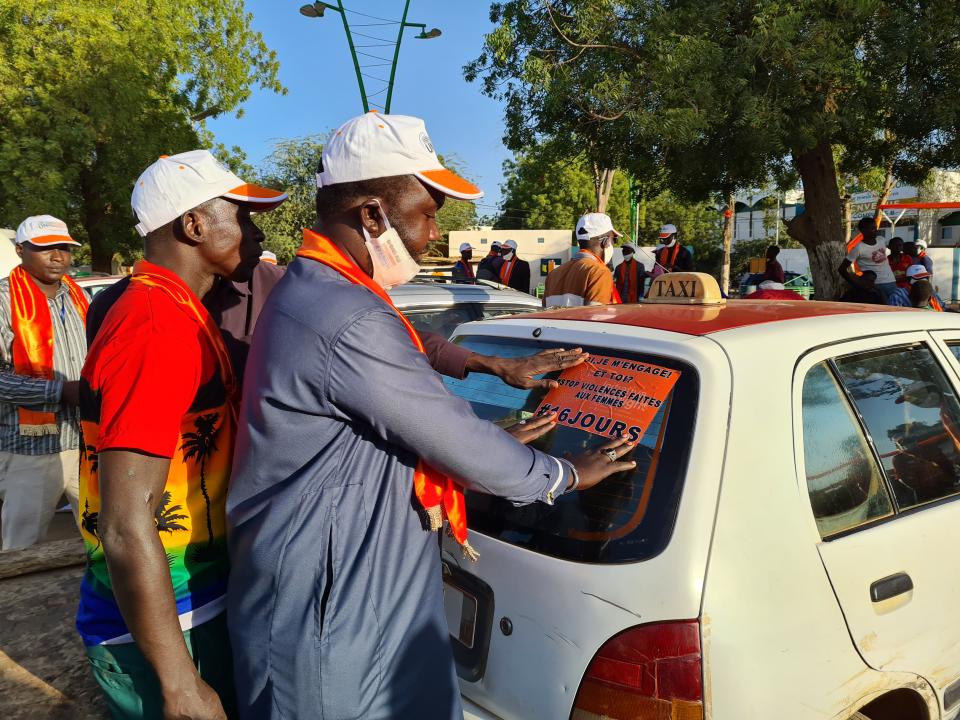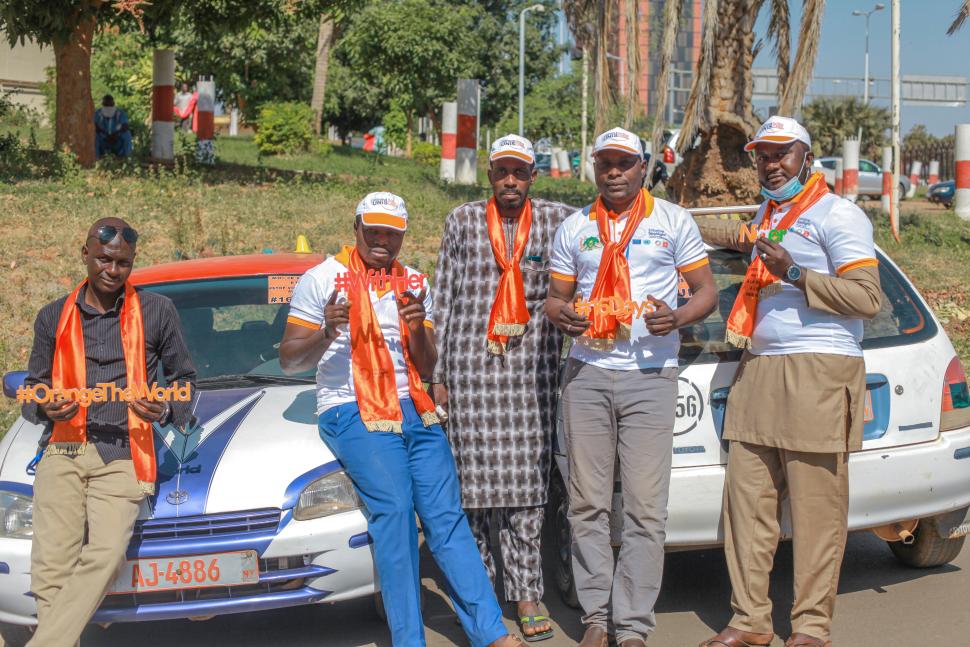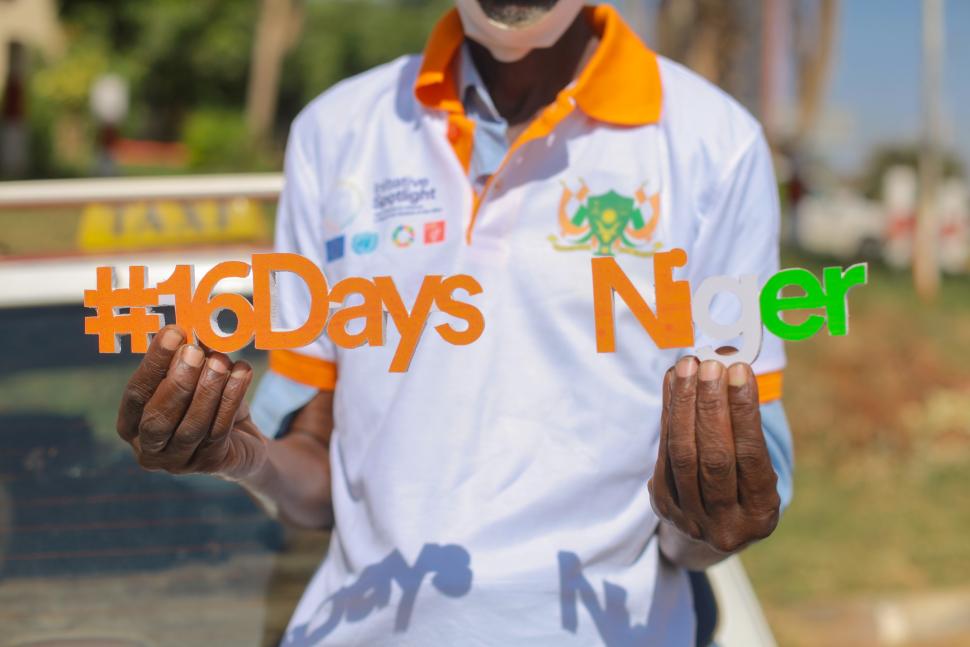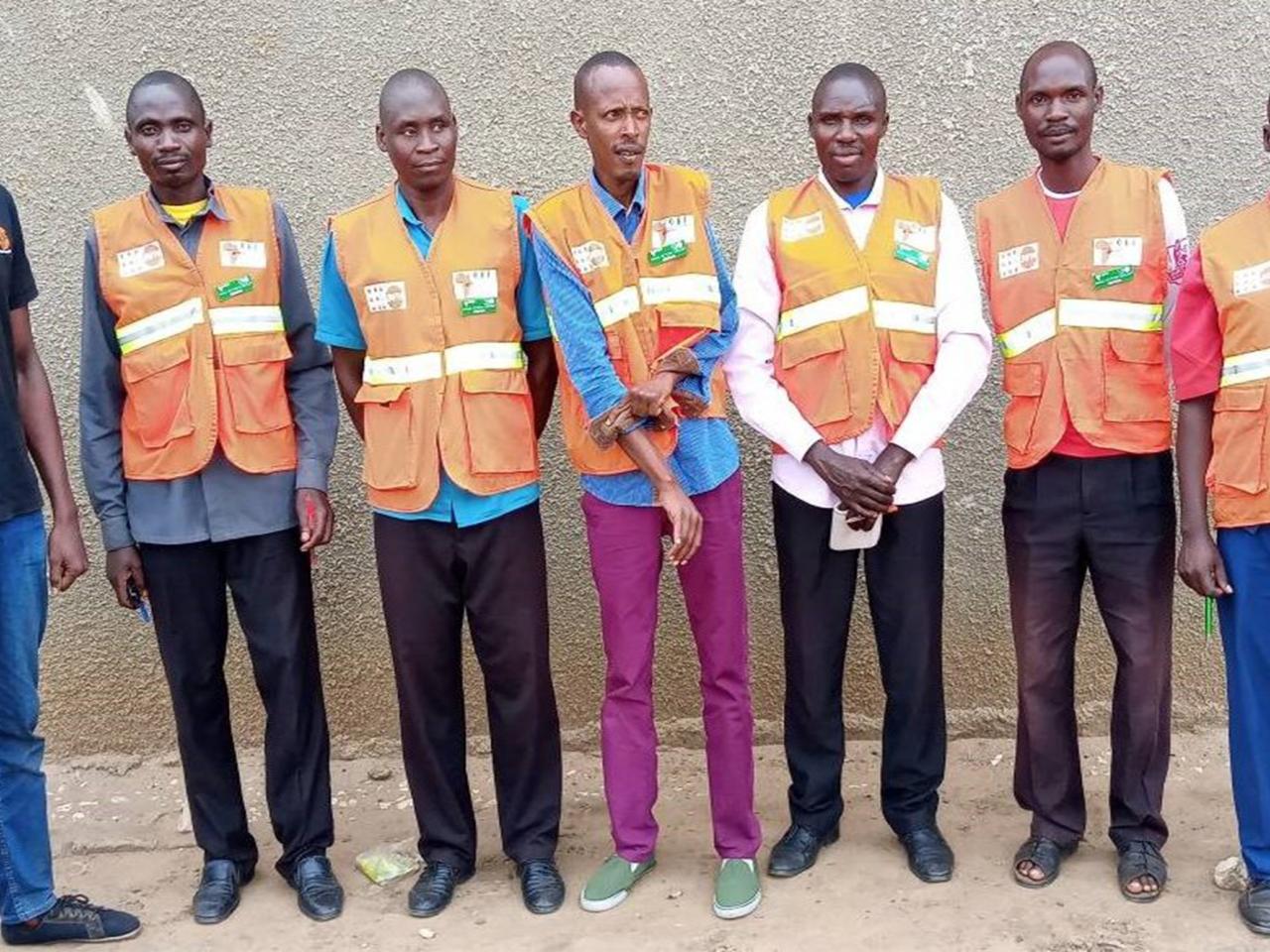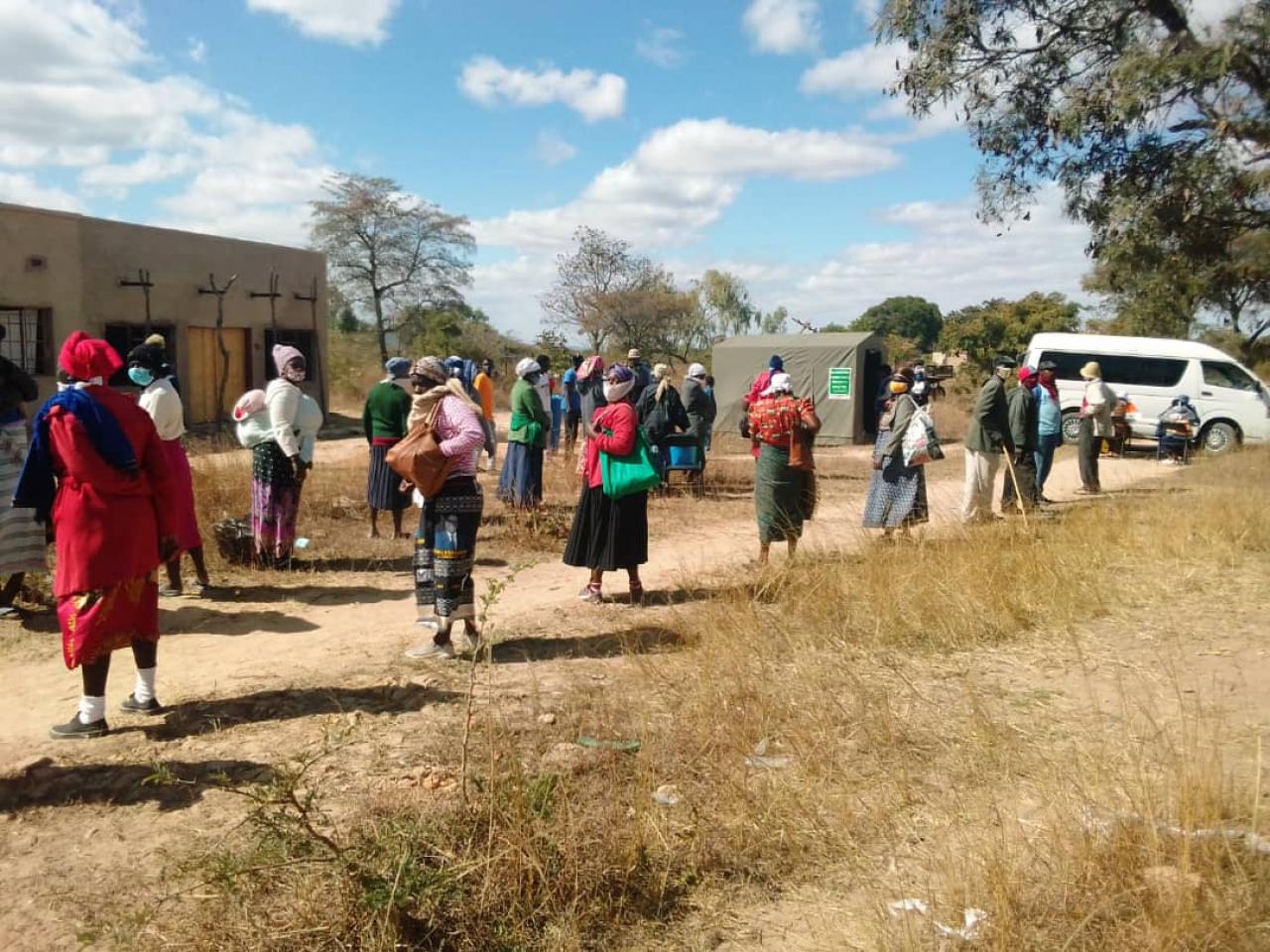In Niger, taxi drivers become activists against gender-based violence
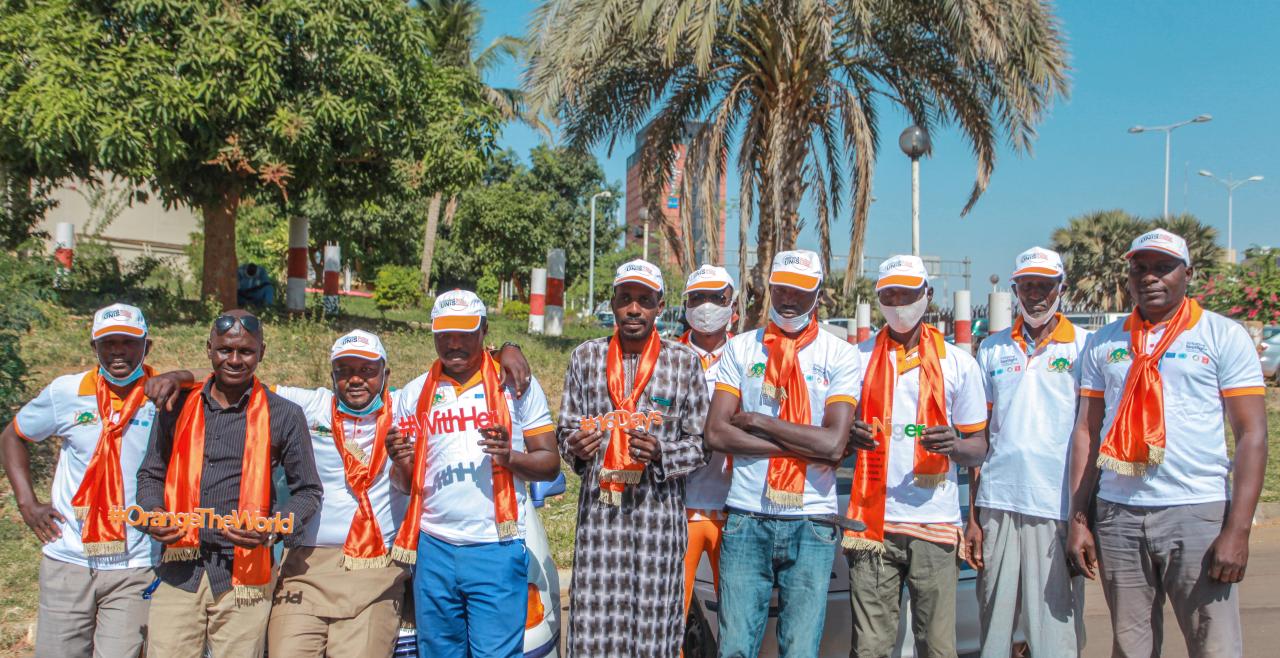
NIAMEY, Niger - “As a man and as a taxi driver, I would like to draw attention to the issue of violence against women and girls,” says Mr. Abass Mahaman Abarchi, a former middle school teacher who now works as a taxi driver in Niamey. “Everyone, especially men and boys, must [take action to] stop the perpetuation of violence against women and girls… Women are the mothers of humanity. We have to respect them.”
Mr. Abarchi, 33, is a former middle school teacher who now works as a taxi driver in Niamey. He joined the Spotlight Initiative campaign for the 16 Days of Activism against Gender-Based Violence (GBV) after attending awareness-raising sessions to increase taxi drivers’ understanding of the causes and consequences of violence. The campaign saw 50 taxi drivers in Niamey become ambassadors against violence and display stickers advocating an end to GBV on their cars. They also wore orange scarves as a symbol of their engagement on the issue.
In Niamey, taxis are the main mode of public transport and they are often used by women to escape abusive situations. Now, thanks to the Spotlight Initiative campaign, many drivers understand how to connect women and girls who have experienced violence with the support that they need. “As taxi drivers, we hear many personal stories, especially during our night shifts,” says Mr. Abarchi. “Now, if I hear somebody in need, I know that I can refer her to the NGO SOS-Femmes et Enfants Victimes de Violence Familliale, or if it is a case of rape, to the police.”
Taxi drivers can also play a key role in informing others about the importance of preventing violence against women and girls, as well as gender equality.
“The other day, a group of young students asked me more information about the orange scarf I was wearing,” says Mr. Abarchi. “I explained that it was the symbol of my engagement to prevent and respond to violence against women and girls. I shared my story with them and encouraged them to continue studying. Education is crucial, especially girls’ education. When a girl has access to education, the entire community benefits from it. Education is crucial to forge a new awareness about violence against women and girls. Through education, we can all change.”
In Niger, gender-based violence is widespread and women and girls are too often subjected to harmful cultural practices such as child marriage and female genital mutilation (FGM). According to UN data, 76 per cent of girls and young women are subjected to child marriage, while 2 per cent of the female population still suffers from FGM.
The prevalence of these issues are at the heart of Mr. Abarchi’s engagement with Spotlight Initiative.
“In 2013, when I was a teacher in an elementary school in the suburbs of Niamey, I asked my girl students if they were victims of female genital mutilation," he says. "All of them answered ‘Yes’ except two. I investigated further with security guards and the school principal and they explained that female genital mutilation was a tradition in some ethnic groups in Niger. Their mothers have been cut and so are their daughters. They continue explaining that women are not real women if they are not cut.”
Mr. Abarchi did not agree with this attitude and decided to become an advocate against violence and harmful practices within his community, and among family and friends. “Many times, within families there are discussions and arguments. Dialogue is the key to solve all problems. Violence cannot be a solution. We absolutely need to stop using violence within our homes and in public spaces,” he says.
“My engagement will not stop at the end of the 16 Days of Activism. I will continue being an active ambassador against violence against women and girls, within my own community and through the Spotlight Initiative Movement of Taxi Drivers of Niamey.”
By Federica Patton

